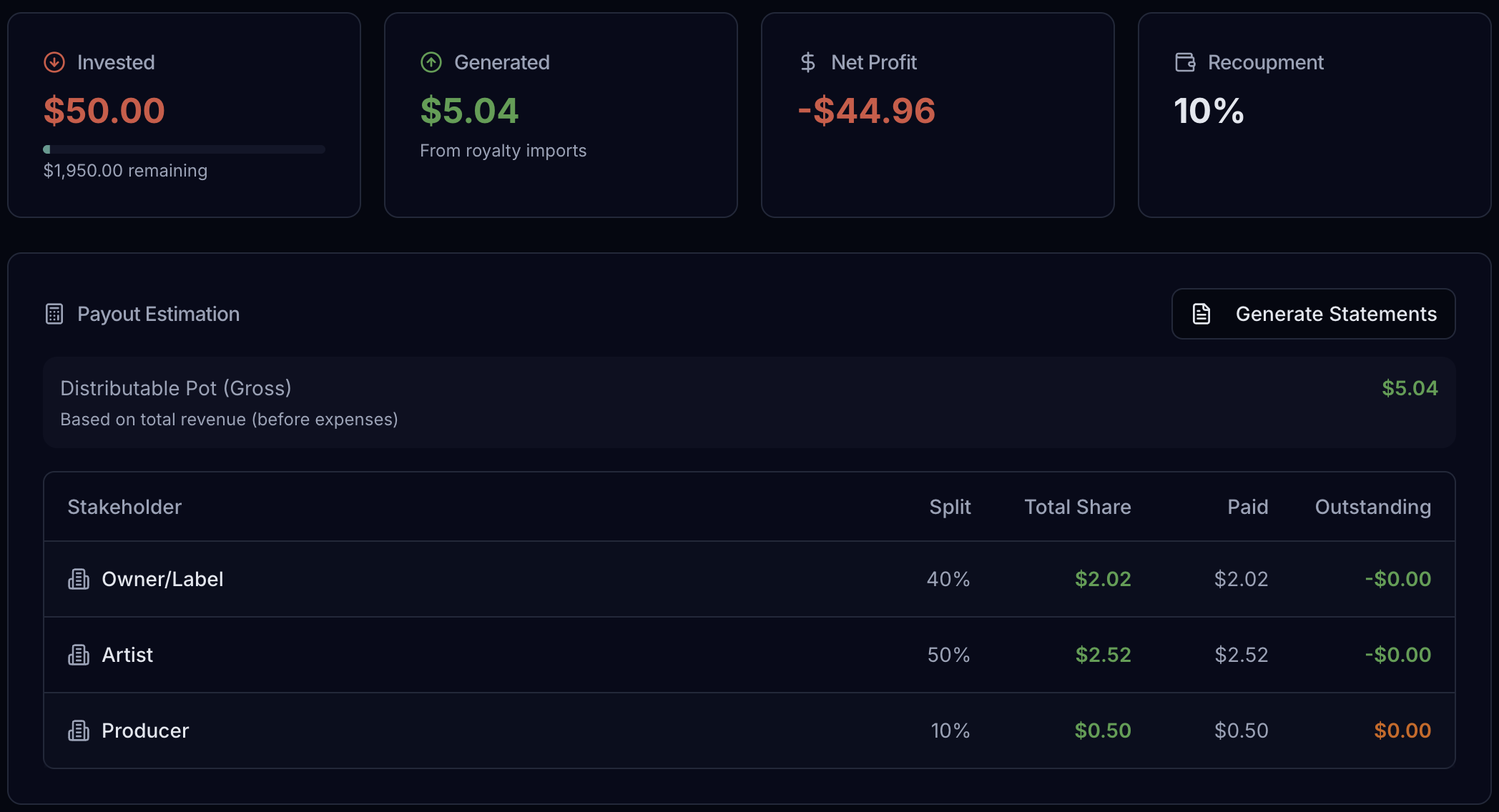Ship Releases Like a Pro
The all-in-one platform for independent artists, managers, and labels to plan, coordinate, and execute flawless music releases.

Tired of Scattered Release Workflows?
If any of these sound familiar, you're not alone.
Spreadsheet Chaos
Release schedules live in 5 different spreadsheets that nobody updates.
Lost in Slack
Important approvals buried in message threads that get lost forever.
Missed Deadlines
Marketing assets arrive after the release is live. Sound familiar?
ReleaseLoop brings everything into one purpose-built platform designed for how music teams actually work.
Everything You Need to Release Music
From planning to promotion, ReleaseLoop has you covered.
Release Management
Track every release from concept to post-release. See status at a glance with our visual timeline.
Smart Task Templates
Load pre-built release checklists or create your own. Never forget a step again.
Marketing Calendar
Plan social posts, playlist pitches, and PR campaigns perfectly synced to your release date.
Royalties & Payouts
Import royalty CSVs from any distributor, auto-match to releases, and generate payout statements for your artists.
Artist & Contact CRM
Manage your roster and industry contacts in one place. Spotify integration for artist enrichment.
Google Drive Integration
Link existing Drive folders to releases. No duplicate uploads, no broken links.
Team Collaboration
Invite your team with role-based permissions. Everyone stays on the same page.
Asset Management
Organize artwork, audio files, and promo materials. Share public links for approved assets.
Royalty Ingestion & Artist Payouts
Import royalty data from any distributor, auto-match it to your catalogue, and generate payout statements. All without a spreadsheet in sight.
Upload CSV
Drag and drop royalty exports from any distributor. DistroKid, CD Baby, Symphonic, or anyone else.
Map Columns
Smart auto-suggest matches your CSV headers to canonical fields. Save mappings to reuse next time.
Auto-Match
Rows are matched to your releases by ISRC, UPC, or catalogue number. Unmatched rows are kept for manual linking.
Generate Payouts
Create payout statements per artist with split calculations, track what's been paid, and export to CSV.

From Idea to Release Day in 4 Steps
Get your music out there without the chaos.
Create Your Release
Add release details, artwork, and link your artists.
Load Your Workflow
Use our industry templates or customize your own task list.
Coordinate Your Team
Assign tasks, set deadlines, and track progress in real-time.
Ship with Confidence
Hit release day knowing everything is done.
Simple, Transparent Pricing
Pay once, use forever. No subscriptions.
$49.00 per seat gives full access to all features with 1GB storage included. Seats are permanent.
One-time payment
- Full access to all features
- Unlimited Releases
- Marketing Calendar & Budget Tracking
- Unlimited Contacts (CRM)
- 1GB storage included
Each seat includes 1GB. Need more? Add storage packs at $19.00 each, or connect Google Drive.
One-time payment
- 10GB per storage pack
- Add as many packs as you need
- Or connect Google Drive
Trusted by Music Industry Professionals
Real testimonials from labels and managers using ReleaseLoop.
"An incredible platform for label management and made by an even better guy. Pete is super helpful and always open to feedback on his platform! Would recommended to anyone needing label organization/management!"

Will Drake - Uncompromised Souls
Label Owner
"ReleaseLoop has significantly benefitted our record label's organization and planning abilities. This platform provide an excellent way to visualize your schedule of releases and document all the steps necessary. We would recommend it to any record label or art collective to help organize their internal processes."

Adam Sumner - 47 Eyez On Me
Record Label Manager
From the Blog
Tips, insights, and updates from the ReleaseLoop team.
Troubleshooting
Troubleshooting Common Issues Can t Log In Check that you re using the correct email address. Try the Forgot Password link to reset your password. Clear your browser cache and cookies. Try a different browser. Invitation Link Not Working Make sure you ve created an account first. The link may have expired—ask your workspace owner to send a [ ]
FAQ – Common Questions
Frequently Asked Questions Account Billing Can I try ReleaseLoop before paying? Yes! The Artist plan is completely free with 1 active release. Can I cancel my subscription? Yes, you can cancel anytime from Settings → Billing. Do you offer refunds? Contact support within 14 days of purchase for a full refund. What happens to [ ]
Keyboard Shortcuts
Keyboard Shortcuts Speed up your workflow with these keyboard shortcuts. Global Shortcuts ⌘K / Ctrl+K: Open command palette. Escape: Close dialogs and modals. Navigation G then D: Go to Dashboard. G then R: Go to Releases. G then A: Go to Artists. G then C: Go to Contacts. G then T: Go to Templates. G [ ]
Ready to Streamline Your Releases?
Join hundreds of artists, managers, and labels shipping music with confidence.
Get Started FreeNo credit card required • Free plan available